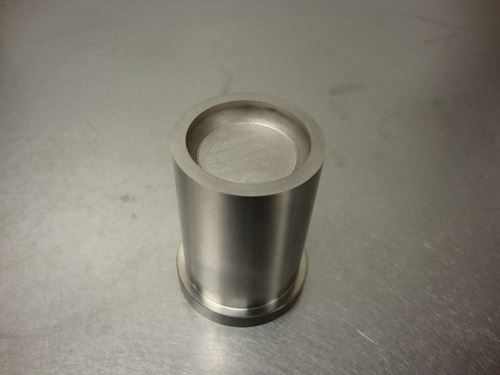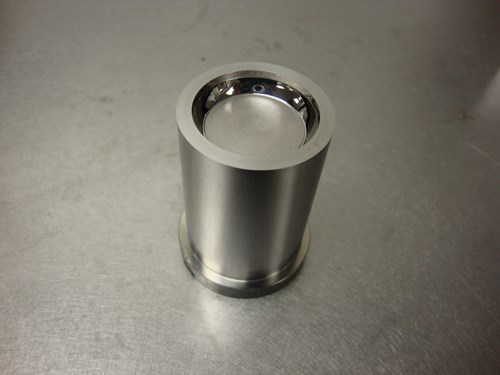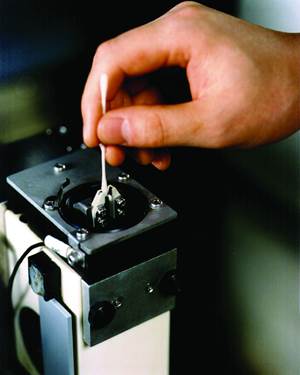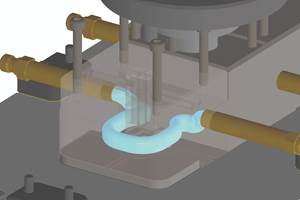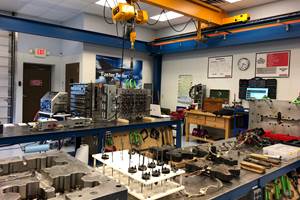How to Hire the Right Mold Polisher
When it comes to mold polishing, every step is crucial.
When it comes to mold polishing, every step is crucial. So, hiring the right polishing professional is a must. Mold polishers are indispensible to the life cycle of a mold—finishing the job with precision and efficiency while saving mold manufacturers thousands of dollars and countless headaches. To do the job right, mold manufacturers need an experienced group of polishers who is well trained and capable of handling any project to ensure that the mold is ready for production.
Hiring professional mold polishers saves money in the long run because if any given mold is placed in the hands of a poorly trained polisher, the final product will have blemishes, resulting in additional money to fix the problem. Problems that include round edges, waviness and tool marks, which can cost thousands of dollars depending on the type and size of the mold.
With keen observation, experience with EDM finishing and SPE-SPI specifications, and a broad knowledge of metals, professional polishers provide the best finish for any mold.
A professional polisher needs to have experience and training for polishing EDM surfaces up to SPE-SPI A-1 finishing. A well polished mold—one that is free from tool marks, has sharp edges, flat surfaces and the required finish—will yield a better finished product, as opposed to a final product that needs to be recalled. This saves money and eases the production process. Depending on the mold, the shutdown of production due to a faulty mold can cost anywhere from $5,000 to $12,000, hampering total profits.
Mold polishers must be skilled on all types of metals and alloys—aluminum, stainless steel, beryllium and copper. Experienced polishers know how to customize procedures to handle any type of mold. One should ask about years of experience, capabilities with respect to mold size, types of finishing that can be provided, and his/her ability to keep dimensions according to the requirements.
Professional polishers also have a unique power of observation that helps them to determine when to proceed to the next step, which results in a more efficient task. Mold polishers are keen detectors of tool marks, experts with EDM finishing and know when to start the buffing process.
Customer service, delivery and reliability are three key attributes to look for when selecting the right professional mold polisher. When a mold needs to be polished, time is of the essence, but quality should never be sacrificed. Mold polishers need the necessary technology and manpower to accomplish tasks—such as diprofilers, ultrasonic machines and sandblasters. With the necessary facilities to polish and ship any mold (size not being an issue), professional mold polishers can limit turnaround time while meeting deadlines and quality standards—giving the customer the security he needs.
Summary
A high level of craftsmanship is needed to appropriately polish a mold, especially for the high precision work of growing specialty fields, such as medical molds, etc. It is this craftsmanship that truly distinguishes a professional mold polisher from others in the field and gives moldmakers confidence that their product will be polished with the highest quality available.
Related Content
Maintaining a Wire EDM Machine
To achieve the ultimate capability and level of productivity from your wire EDM on a consistent, repeatable and reliable basis, regular maintenance is a required task.
Read MoreHow to Analyze and Optimize Cutting Conditions to Reduce Cycle Time
Plastic injection mold design and manufacturing company puts NC program optimization software module to the test. The results were surprising.
Read MoreHow to Supply Cooling to Additive Tooling
Additive tooling provides limitless options for cooling a mold’s difficult-to-cool areas.
Read MoreWhat You Need to Know About Hot Runner Systems and How to Optimize Their Performance
How to make the most out of the hot runner design, function and performance.
Read MoreRead Next
How to Use Continuing Education to Remain Competitive in Moldmaking
Continued training helps moldmakers make tooling decisions and properly use the latest cutting tool to efficiently machine high-quality molds.
Read MoreReasons to Use Fiber Lasers for Mold Cleaning
Fiber lasers offer a simplicity, speed, control and portability, minimizing mold cleaning risks.
Read MoreHow to Use Strategic Planning Tools, Data to Manage the Human Side of Business
Q&A with Marion Wells, MMT EAB member and founder of Human Asset Management.
Read More
